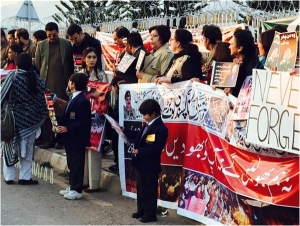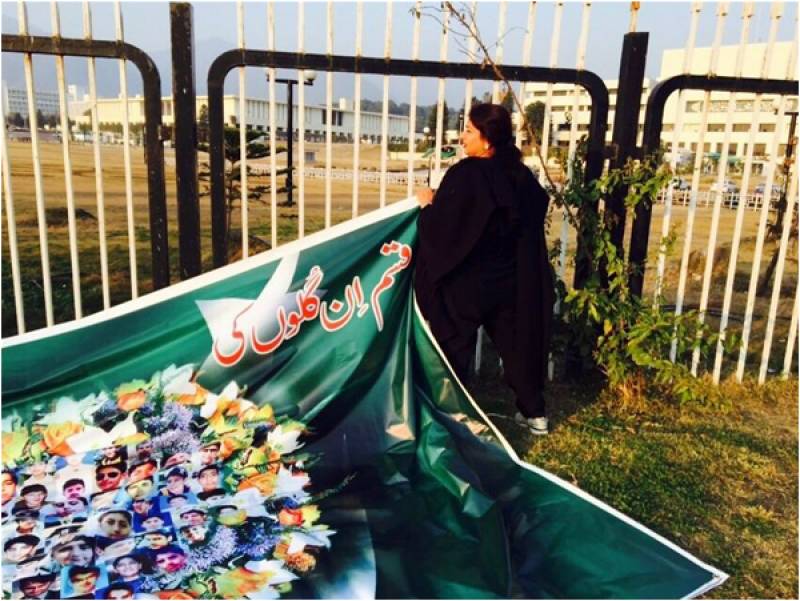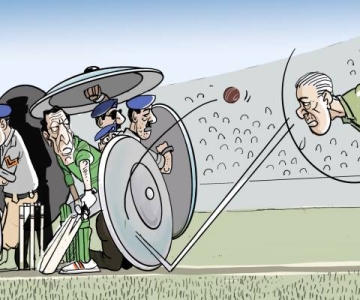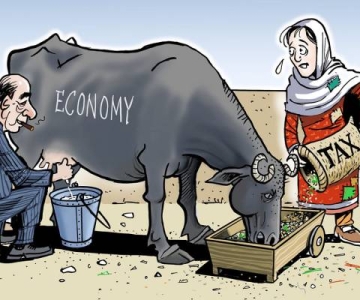It has been two months since the recent wave of civil society activism to pressure the government to act against terrorist outfits began. Are you satisfied with the results?
Despite its many weaknesses, the civil society has been perseverant in pushing for government action to counter terrorism. Sometimes the results are not visible in a ‘breaking news’ fashion, but you can see them in changing attitudes. For example, the good/bad Taliban debate. I remember those days during the Pervez Musharraf regime and even after that, it was not possible to reject the ‘good Taliban’ notion without being labelled a traitor or anti-Pakistan. But now you see how the prime minister’s powerful adviser had to eat his words when he hinted at the ‘goodness’ of Taliban. Similarly, the government had to lodge an FIR against the proscribed terrorist outfit ASWJ. Who could have thought, until even a few months ago, that such things could happen? It is correct that other circumstances have also contributed. The December 16 attack on the Army Public School in Peshawar somehow shook the nation. It was an ‘I told you so’ moment for the progressive civil society. We saw the influence of the right wing religious actors receding after that point. Had the civil society not come forward and claimed that space, this moment would have passed without making any difference. Because we were up and alive, we were able to keep the state awake. And this is how it is going to be. We are not going to let this moment pass without having the government do something about it.
Tell us about the demonstrations outside the Pakistani Parliament last month. There were parliamentarians and ministers in attendance. We haven’t seen much action on their part.
We chose Parliament House for our vigil last month as a one-month-reminder to the state because we wanted to make a symbolic statement of our commitment to democracy and democratic institutions while holding these institutions accountable to the people. We also thought it to be high time that the political parties were formally invited to be part of the struggle to save Pakistan from the menace of terrorism, extremism, radicalisation and proxy wars. It was encouraging that so many parties participated. We had representatives from the MQM, PPP, PML-N, PML-Q, QWP, ANP, Communist Mazdoor Kisan Party and Awami Workers Party. It shows the commitment of the political class.
Why we didn’t see much action might be because much in this country is hostage to civil-military relations. Howsoever we keep criticising political parties for right or wrong reasons, it remains a fact that taking any ‘action’ may not be a mandate solely theirs. It is sad that many new comers who are keen to adopt the title of ‘civil society’ are shy of asking real questions from real powers.
I’m very clear in my mind about why we see no action. It is because we haven’t resolved some basic questions while declaring a war on home-grown terrorists. These basic questions are about our national security paradigm. What is going to be our policy in the race for parity with a huge neighbour, if not these proxies? How are we going to deal with the Western border in case we don’t have a puppet government there? Are we still going to support the older puppets there? How are we going to retain our ‘major artery’ if we don’t offer patronage to sectarian terrorists who are used in Kashmir in lieu of jihad at home? Nothing of this meshwork has been set up by politicians. Let’s stop pretending that politicians can take a step in the direction that has long been a no-go area for them.
Sometimes the results are not visible in a ‘breaking news’ fashion, but you can see them in changing attitudes
Is the civil society’s focus on Lal Masjid an appropriate strategy? Should it not be addressing the security policy that relies on proxies?
It was a brilliant move to point out the presence of terrorist supporters right in the heart of the capital. But it has taken away all the focus from the real issue. Mullah Abdul Aziz is, I think, not the real issue. The real issue was who made him what he is now? Which certain building within 500 meters of Lal Masjid offered assistance and patronage to him to convert a mosque into a terror hub? How do we make sure those ties have been broken? It is very amusing to see that the FIR registered against Mullah Abdul Aziz is for his alleged threatening of civil society representatives. In my opinion, if we wanted to make a point, we should have directly made it. He had used guns against the state. That is an act of treason. He announced a fatwa, during his sermon in 2004, against Pakistan Army. That is an act of treason. He rejected Pakistan’s constitution and said on TV that he would fight against the constitution and democracy because they were against his interpretation of Islam. That, again, is an act of treason. As a part of the civil society, I would prefer to question the state why this man was allowed to do what he has been doing since as long as early 2000s? Don’t we see the bullet riddled bodies of Baloch Sarmachars as a daily routine in Balochistan? I’m not saying every enemy of the state should be treated like that. What I’m trying to point out here is, why two different treatments? If you think the Baloch nationalists are enemies of the state, you pick them up, torture to kill them, and throw their bodies on the streets. On the other hand, this man has been shrieking at the top of his voice against the army, the state and the constitution, and he was not only allowed to do so, but was being funded by a land mafia don who works in cahoots with the most powerful institutions of this country. This does not quite add up. And I know who should be asked this question. Not politicians certainly.

Let’s stop pretending politicians can take a step in the direction that has long been a no-go area for them
Why has the number of activists participating in the movement dwindled in the recent days?
That has always been the case. We never had great numbers on the street. But we do have a value in the intellectual sphere and in the collective conscience of the society. We have been ridiculed as ‘35 odd liberals’ even by the well meaning people in the media. But these ‘35 odd liberals’ have had an influence on the discourse despite being very small in number. What we say has an effect on those we criticise. That is why we are sometimes rubbished as ‘traitors’ or ‘anti-Pakistan’ or ‘anti-Islam’. There have been times when we were called agents of the West and of India who are trying to destroy Pakistan. Destroying Pakistan by standing up for peace? Yeah right!
We have confronted powerful military dictators and their political surrogates alike. We have fought against oppressive regimes. We have been critical of political, democratically-elected governments as well, whenever it was necessary. We have been raising concern against international imperialist forces working in countries like Pakistan and destroying our social fabric for their own geo-political interests. We have been out against misogyny and patriarchy. We have been up against the capitalist cold bloodedness. We have questioned the flag-bearers of religion on persecution of minorities. This all has been done by these liberals who ‘wouldn’t make a total of 200 in the entire country’ to quote a head of religious party who was mocking us back in 2012 when we were advocating for a law against domestic violence.
That is us. Few in number, but with a lot of substance.
The author is Editor, The Friday Times and founder of Naya Daur Media. Earlier, he was editor, Daily Times and a broadcaster with Express News and Capital TV. His writings are archived at www.razarumi.com



